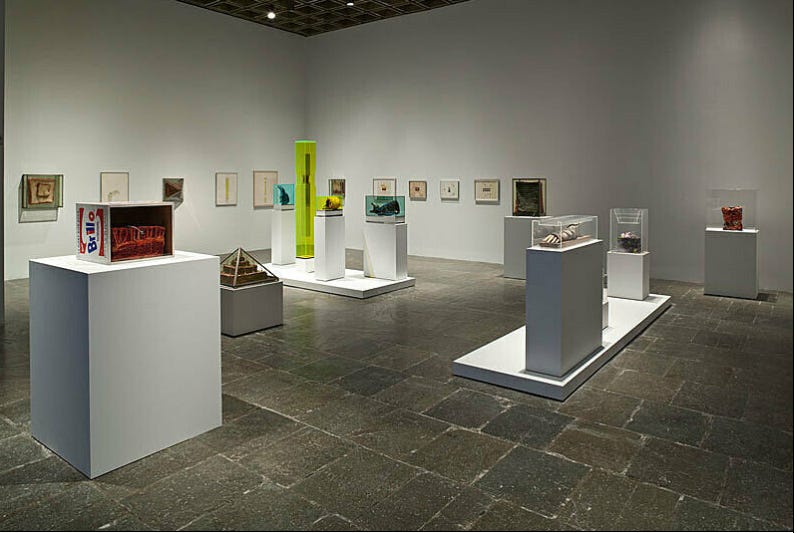Meat Lockers
Steven Tagle on Paul Thek's "meat pieces" and the reassurance of grotesque sensuality.

My friend Zoe died in the first wave of the pandemic, one of 20,000 New Yorkers lost in a period when leaders denied the virus, denied its power to empty streets and hollow out our lives. Americans have always been afraid of death, and in the hubris of those early days, when we didn’t have enough tests to diagnose the sick nor enough masks to protect the healthy, many still had the luxury of discounting the dead, the clearest indicator of our failure. It’s just like the flu, they said, you’re young, don’t worry. Meanwhile, New York hospitals overflowed; corpses were stacked on wooden racks inside humming, refrigerated trailers.
Zoe was thirty, and her final month on the ventilator seemed antithetical to her large, loud life. She was unable to speak or breathe, swallowed up by the machine meant to save her. Silence equals Death, AIDS activists used to say. I think of her now when I revisit Paul Thek’s “meat pieces,” a series of neon-yellow and turquoise-blue Plexiglas vitrines that house meticulously crafted, sinewy slabs of meat. The hunks glisten inside their boxes, threaded with tubes or stacked into ziggurats; cavities ooze black marrow, while African flies feast on exposed fat and gleaming tissue. The body horror of these pieces prefigured the horror of the AIDS epidemic, which eventually consumed Thek himself.
Amid COVID denial and cool, contactless death, the grotesque sensuality of these sculptures is oddly reassuring. The emotional heat of Thek’s “meat pieces”—marrow licking vitrine floor, flies dancing over flesh—bleeds through the sleek, inexpressive surfaces meant to contain them. Zoe, too, ran hot, breaking the constraints of decorum. She cursed and cackled; she overshared and encouraged me to overshare in turn. There’s so much I want to tell you, Zoe. I miss your hugs, your sarcasm, your messy humanity. But you’re not here, so I study the hairs that worm up through the lid of a vitrine, writhing, amassing, each hair desperate to reach out, to break free. And I pray, Lord, in your mercy, grant us our heat. Grant these most humble desires the breath of life.
Paul Thek (1933-1988) was an American artist who worked in a variety of media. The “meat pieces” comprise a series called Technological Reliquaries. Thek was born and died in New York City. His work is on permanent display at The Watermill Center on Long Island.
Steven Tagle is a writer based in Greece. He is the recipient of fellowships from the Institute of Current World Affairs, Fulbright Greece and the Asian American Writers’ Workshop.


Steve, This is indeed a hot piece. Powerful and important. I feel honored to be able to read it.
Thank you for your sharp and true insights.
I'd love to read more of your work.
You can contact me on my website: dianparker.com